In July, the Iraqi Central Bank halted all foreign transactions in Chinese Yuan, succumbing to intense pressure from the US Federal Reserve to do so. The shutdown followed a brief period during which Baghdad had allowed merchants to trade in Yuan, an initiative intended to mitigate excessive US restrictions on Iraq’s access to US dollars.
While this Yuan-based trade excluded Iraq’s oil exports, which remained in US dollars, Washington viewed it as a threat to its financial dominance over the Persian Gulf state. But how has the US managed to exert such total control over Iraqi financial policies?
The answer lies in 2003, with mechanisms established following the illegal US-led invasion of Iraq.
A legacy of ‘Operation Iraqi Freedom’
Since the signing of Executive Order 13303 (EO13303) by President George W Bush on 22 May 2003, all revenues from Iraq’s oil sales have been funneled directly into an account at the Federal Reserve Bank of New York.
EO13303, titled “Protection of the Development Fund for Iraq and Other Property in Which Iraq Has an Interest,” has been renewed annually by every US president, including Joe Biden in 2024. This executive order essentially places control over Iraq’s oil revenues under the discretion of the US President, leaving Baghdad with limited control over its resources and earnings.
The roots of Iraq’s financial dependence on the US stretch back to the 1990s. Following Iraq’s invasion of Kuwait in 1990, UN Security Council Resolution 661 imposed severe economic sanctions to isolate Iraq from international trade. These sanctions, exacerbated by former president Saddam Hussein’s refusal to comply with withdrawal demands, crippled the Iraqi economy.
Control over Iraq’s finances
UNSC Resolution 687, passed in 1991 after the Persian Gulf War, extended these sanctions while introducing the controversial “Oil for Food” program. Although it allowed Iraq to sell oil in exchange for humanitarian goods like food and medicine, the sanctions resulted in immense human suffering, with over one million Iraqis, half of them children, dying during this period. Then-US secretary of state Madeleine Albright infamously defended the sanctions in a 1996 interview, stating that the deaths were “worth the price.”
Following the invasion of Iraq, the US occupation of the country became a reality after the collapse of Saddam’s government. Faced with a fait accompli, the UN Security Council had to accept the new status quo.
According to International Humanitarian Law, occupation forces – in this case, the US and UK – become responsible for the well-being of the populations they occupy. So, UNSC Resolution 1483 was issued on 22 May 2003 to establish the US-led Coalition Provisional Authority (CPA) as Iraq’s administrator and create the Development Fund for Iraq (DFI) to manage Iraqi oil revenues.
Note that Resolution 1483 did not mention the US Federal Reserve as the depositary of Iraqi funds, nor did it assign a location for the DFI headquarters or account. In fact, the resolution specifically states directed that the DFI should “be held by the Central Bank of Iraq.” It was the CPA, led by Paul Bremer, that decided unilaterally to house the account at the Federal Reserve Bank of New York.
This decision allowed the US government to maintain tight control over Iraq’s oil revenues. From that point until today, the Iraqi Ministry of Finance has had to submit requests for funds to the US Treasury, which then approves or denies these requests based on its own criteria.
This monthly transfer of US dollars – which are literally flown into Baghdad in pallets of hard cash – determines Iraq and its 40-million-population’s ability to pay for basic needs like salaries, food, and medicine.
Blackmailing Iraq
Whenever Washington feels that Iraq is not compliant with US regional goals, these fund transfers can be delayed or reduced. In January 2020, for instance, after the Iraqi Parliament voted to expel US troops following the assassination of Iranian Quds Force General Qasem Soleimani and Iraqi Popular Mobilization Units (PMU) Deputy Commander Abu Mahdi al-Muhandis, the Trump administration threatened to freeze Iraq’s access to its oil revenues.
Today, Iraq’s financial situation remains dire. Despite having oil revenues piling up in the Federal Reserve Bank of New York – estimated today at around $120 billion – Iraq is burdened with a growing debt that matches this amount.
The country’s inability to control its own funds has prevented long-term reconstruction and development, forcing it to rely on international loans. Ironically, Iraq has also become one of the largest holders of US Treasury bills, with investments totaling $41 billion in 2023.
In addition to its economic challenges, Iraq has been drawn into the escalating regional conflict amid the ongoing Gaza war and the intensification of Israel’s aggression against Lebanon. Iraqi resistance forces have actively participated in military strikes against Israeli targets in solidarity with both Palestinian factions and Hezbollah.
The involvement of Iraq in this conflict is not isolated. Iraqi factions have routinely targeted US military bases in Iraq and Syria – viewed as illegal foreign forces subjugating Iraq’s sovereignty – contributing to a broader escalation that has drawn in actors from across West Asia.
These troops have vowed to continue their campaign against both US and Israeli targets, aligning their actions with the region’s Axis of Resistance.
The UN shutters DFI, but the US refuses to comply
Iraq ceased to be under occupation, at least formally, when it signed the “Strategic Cooperation Framework” agreement with the US in 2008, which says that American forces are present in Iraq only at the request of the Iraqi government.
Attempts by the UN to restore Iraq’s control over its finances have largely failed. In 2010, UNSC Resolution 1956 demanded the closure of the DFI by no later than 30 June 2011 and the transfer of all proceeds to the Iraqi government.
Despite these clear legal directives, the DFI account remains under US control at the Federal Reserve Bank of New York in defiance of the UN Security Council resolution. Worse yet, enduring US dominance over Iraq’s financial resources has deeply exacerbated the corruption and dysfunction plaguing the country.
Ending the work of the UN International Advisory and Monitoring Board of the DFI was one way of obscuring the massive corruption and theft of resources by American and Iraqi actors.
The unprecedented corruption that was spread throughout Iraq and its institutions can be laid at the doorstep of this policy. The gargantuan amounts of hard cash that are flown into the country monthly, the unaccounted-for astronomical sums that disappear from various ministries, and the dollar exchange shops (banks) set up by political groups that thrived alongside the US occupation forces have turned Iraq into one of the most corrupt countries in the world.
Iraq’s dependence on the US for access to its own oil revenues, combined with its growing debt has significant impacts on its sovereignty, while its involvement in the regional war also will have implications on its relations with the US.
While Iraq may no longer be under formal occupation, the mechanisms of financial control established after the 2003 invasion persist. These controls not only limit Iraq’s economic development but also entangle it in broader geopolitical struggles.
Today, both the US Administration of Joe Biden and the Iraqi government led by Mohammad Shia al-Sudani – which has not taken steps to free Iraq’s sovereign funds – can be considered in violation of United Nations Resolution 1956 issued in 2010.
Source: The Cradle


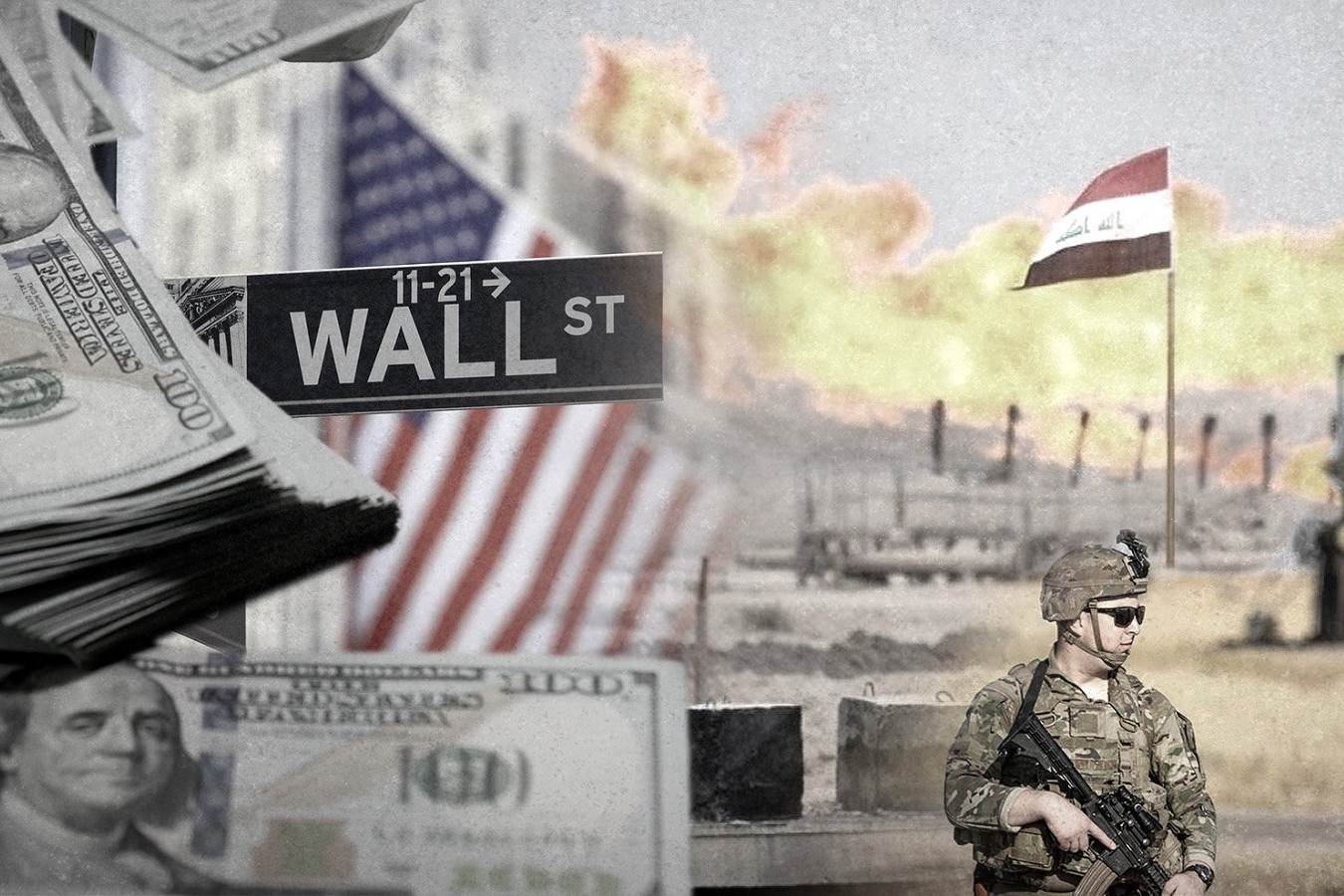

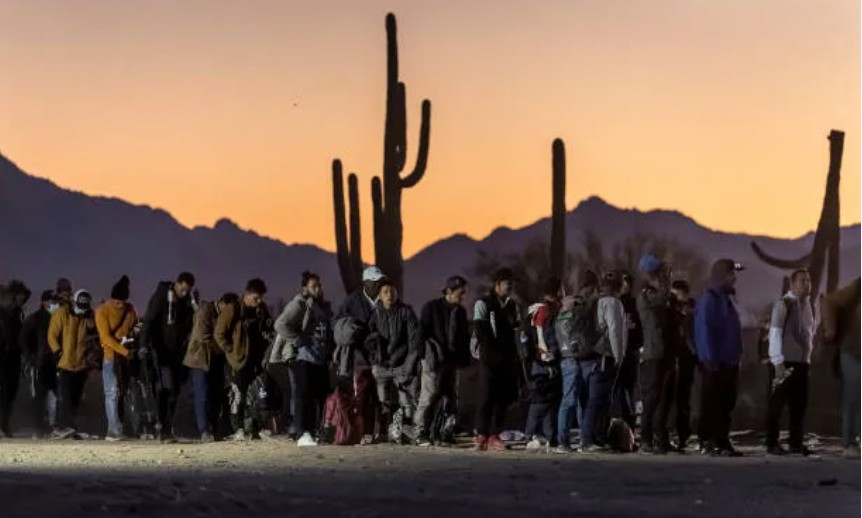

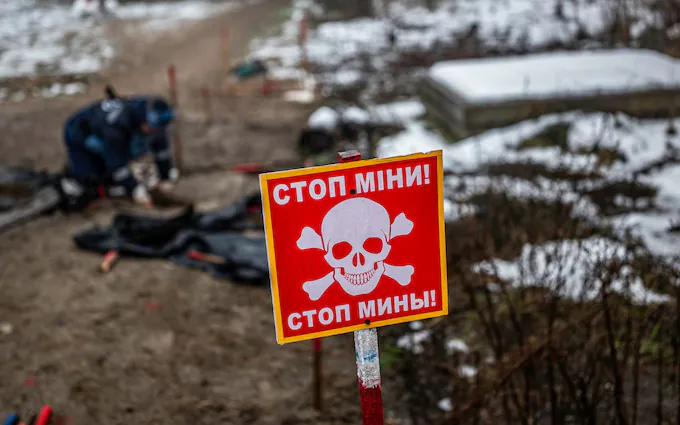
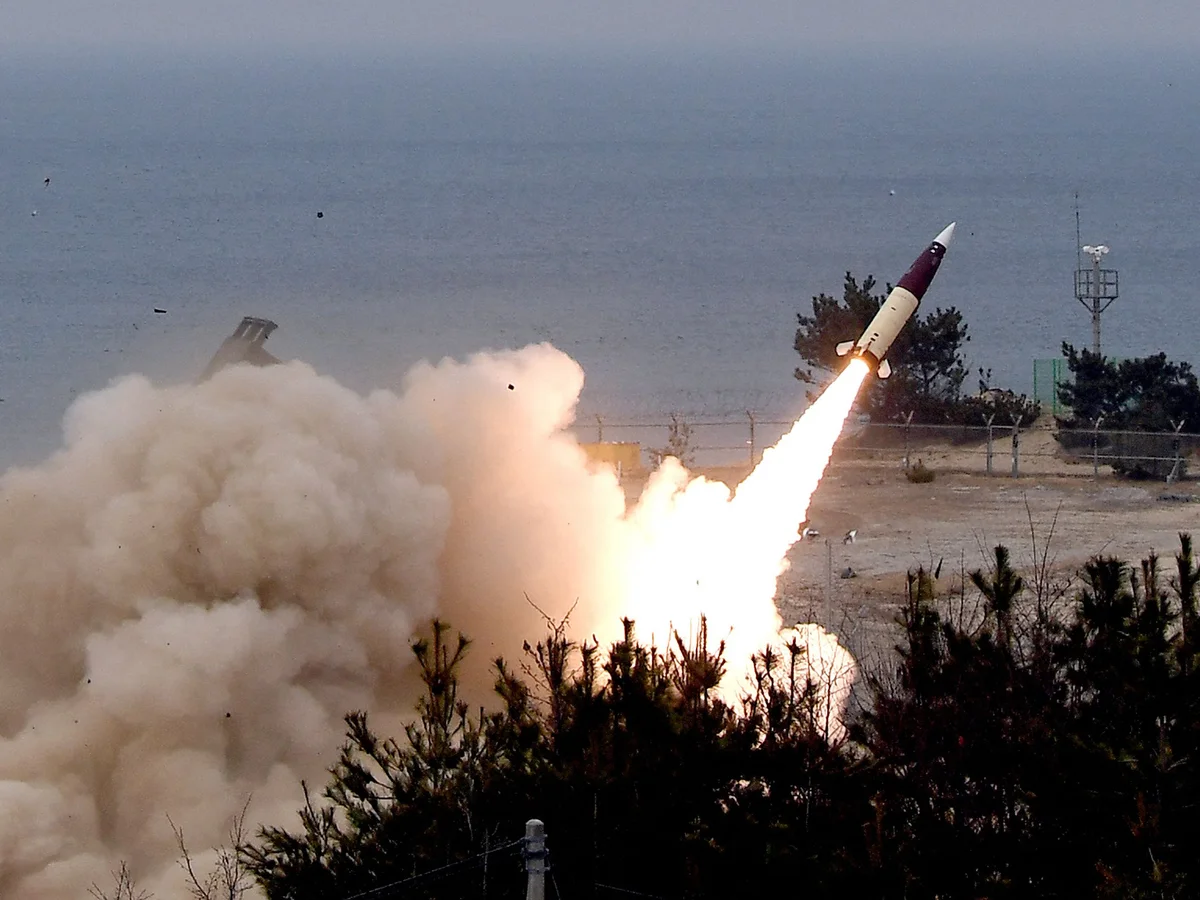
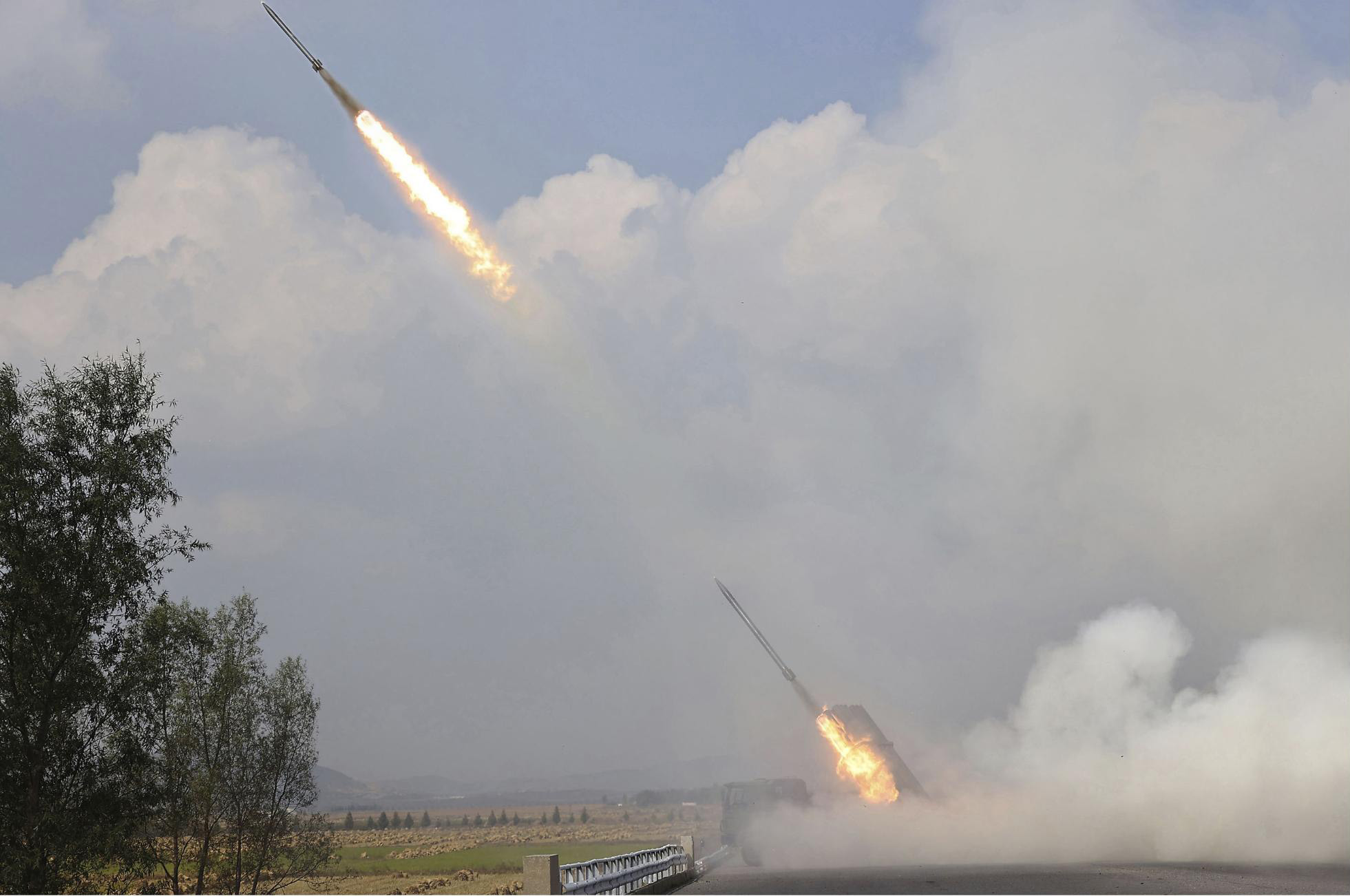




No comments.
By submitting a comment you grant Free West Media a perpetual license to reproduce your words and name/web site in attribution. Inappropriate and irrelevant comments will be removed at an admin’s discretion. Your email is used for verification purposes only, it will never be shared.